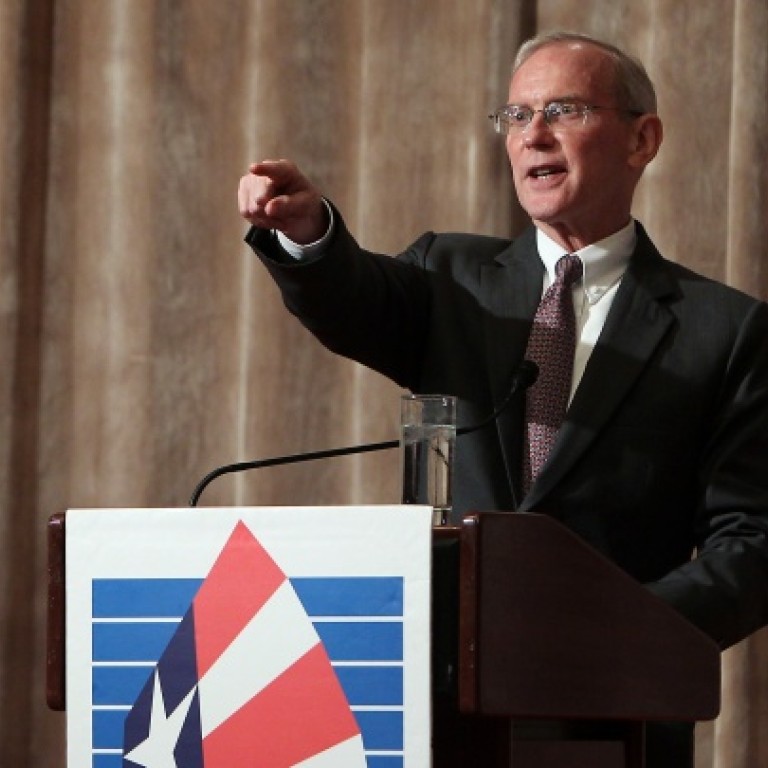
Hong Kong political reform is none of America's business
Lau Nai-keung says Hong Kong's political reform is none of America's business
Stephen Young, the outgoing US consul general of Hong Kong and Macau, is considered a sensitive figure here because of his alleged association with "colour" revolutions, particularly the Tulip Revolution in Kyrgyzstan, where he served as ambassador. Young's high-profile and outspoken style has also raised eyebrows in Hong Kong diplomatic circles, gaining him some official rebuttals from Beijing. Just before he steps down, he could not refrain from commenting last week on Hong Kong's constitutional development. This time, the reprimand was swift and severe, and from both here and Beijing, which cited the Vienna Convention regarding diplomatic behaviour, which forbids diplomats from interfering in the internal affairs of host states.
The message is crystal clear: this is none of America's business. The hidden signal is also easy to decipher: Hong Kong's sovereignty and governance are part and parcel of China's core interest and are therefore untouchable. Both the US State Department and Young's successor, Clifford Hart, another sensitive figure with his military and national security background, should take heed. The consequences of any serious misjudgment, either on the Chinese or American side, would be felt around the world.
Let's go back to the early 1980s, when the British initiated negotiations with China about Hong Kong's political future. At the time, China was considered poor and weak, and a majority of Hongkongers feared for China's future, believing that another Cultural Revolution could erupt at any time. As a result, the British seriously misjudged China's determination to regain sovereignty over Hong Kong.
Today, some people seem to think that with the media and the legal system on their side, and with dissident politicians leading a horde of brainless "red guards", they can force the central government to concede to their demands and ultimately seize power through the chief executive election, leaving China with nothing but symbolic sovereignty. Failing that, they would initiate "Occupy Central 2.0" and precipitate another "Tiananmen incident" to bring the central government to its knees, or at least inflict great damage on the country and this city.
These desperados simply hate China and don't want to be Chinese, and as such they refuse to understand the country and its history. They should at least try to learn something about what happened during the long and drawn-out Sino-British negotiations that extended later into the Joint Liaison Group. Reading something about President Xi Jinping might help, too.
In a nutshell, never underestimate China's determination when it comes to matters of sovereignty and national integrity. It is not just a matter of face; to every self-respecting Chinese, and there are more of them every day, this is the truth. No government can be seen short-selling China.
Looking at the present situation, it's clear that the dissidents will test the will of the central government, but it will be at their own risk. And God help the innocent adolescents who do not know what they are doing and what the price of their actions will be. It is immoral for the dissidents to intentionally drag secondary-school children into their political plot. As for the Americans, is it really in their best interests to poke at the core interest of a country with a population four times as big as theirs, and for a suicidal campaign organised by rank amateurs? There is no upside to this, and the vital interests of two powers are at stake.
Finally, here's some advice for the next US consul general, for what it's worth: never associate with the bad or the stupid. And stay well away from those with both attributes.
